Georgina Roberts made her mark on the Olympic Trap stage before turning her attentions to coaching. Here, we find out more about what it took to get where she is today
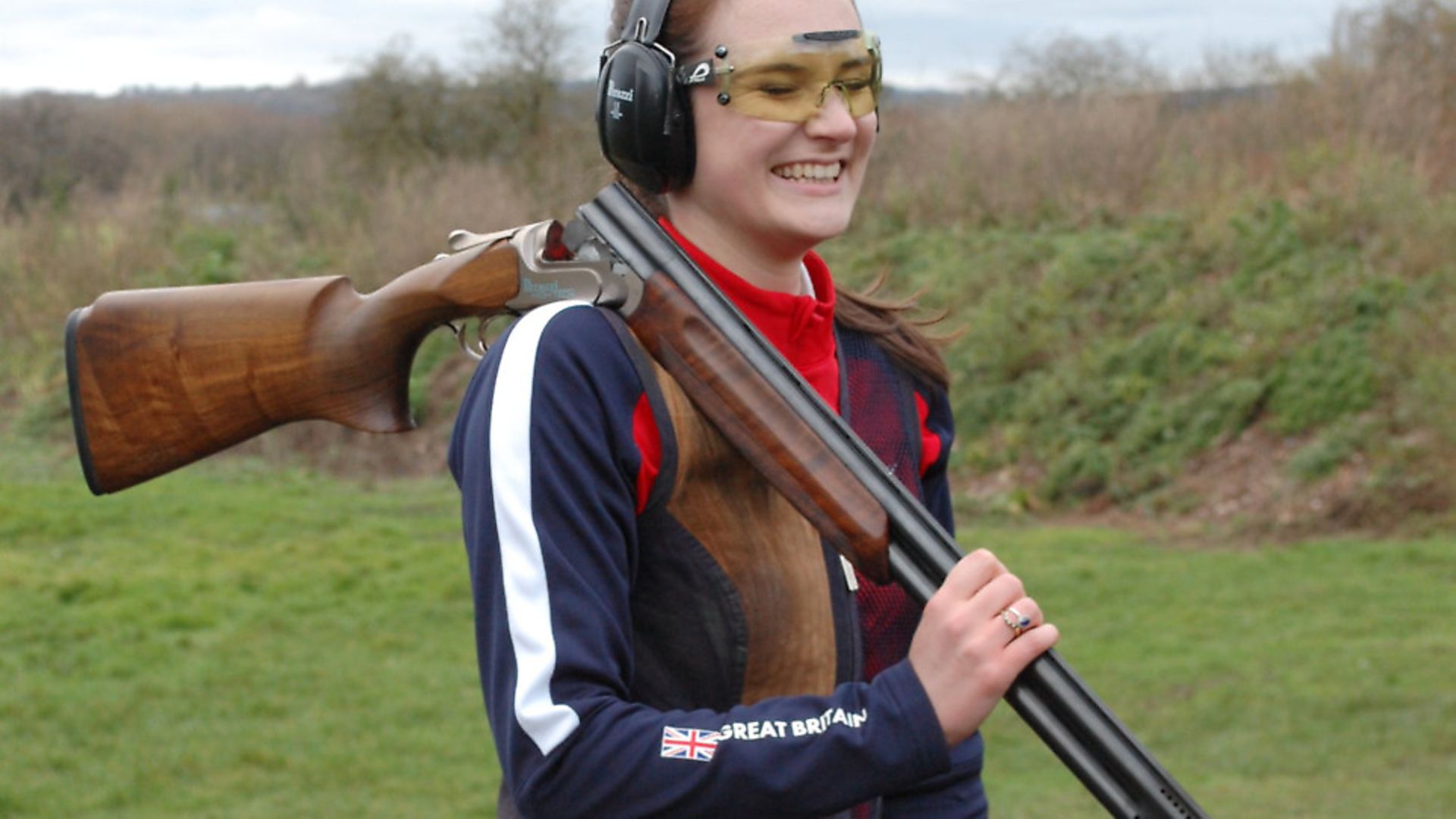 credit: Archant
credit: Archant
Georgina Roberts is a 22-year-old Olympic Trap shooter who, about a year ago, made the choice to take a temporary step back from her competitive career and focus her efforts on coaching. Her experience of international competition and all the associated highs and lows, along with a clear understanding of the time and dedication required to reach that level, left her well-placed to advise her diverse group of clients in all areas of their own shooting. I was keen to find out more about Georgina, who only two years ago was shooting alongside the Juniors she now coaches through British Shooting’s Talent Pathway programme. We decided to meet at Doveridge Shooting Ground to chat about her own route into this challenging vocation, and, of course, to break some clays together!
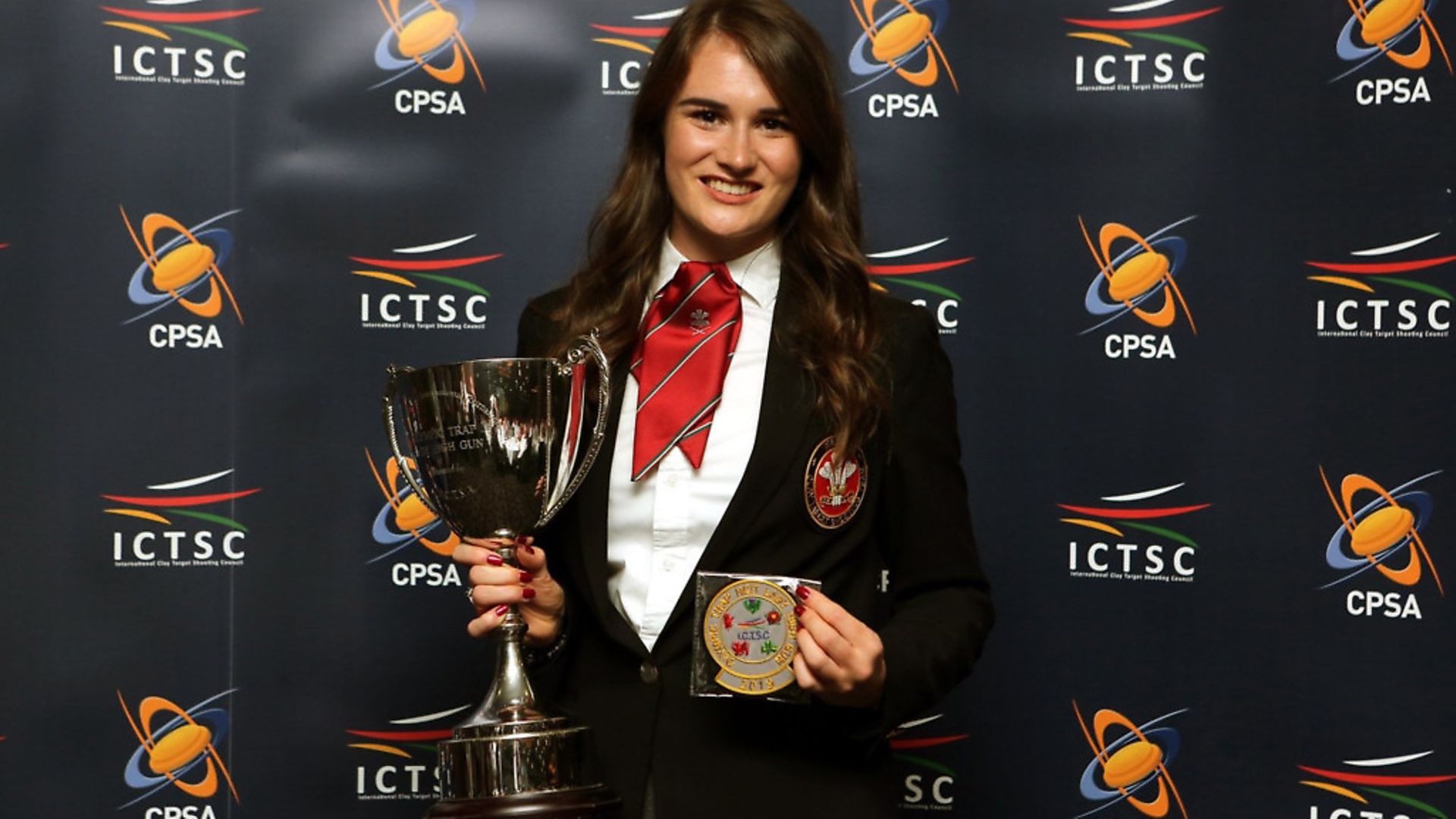 credit: Archant
credit: Archant
Crazy schedules and qualifications
First up, I was surprised and impressed to discover that Georgina has a full-time job outside of the shooting world, and that all her coaching and shooting fits around this, making for a seriously crazy schedule.
She described her job role as: “Constant chaos! I’m a full-time publisher at MoneySuperMarket, an athlete, a coach for British Shooting and privately, through G.T. Roberts Coaching, an ambassador for The Mintridge Foundation, a writer for BASC and Clay Shooting magazine, a board member for the Welsh Clay Target Shooting Association (WCTSA) and I’m also completing a part-time university degree.”
It’s a stark reminder of how challenging it is to make a living working full time in the shooting world – it seems that if going full time is your end goal, it is something to be worked towards, especially if you are coaching privately and building your own client list. Before that can happen, it helps to get some qualifications under your belt. Georgina is a CPSA safety officer, an ISSF D licence coach, and has completed the NSPCC safeguarding course, which is a wonderful idea if you plan to be working with children, not only to learn how to protect them but also yourself. She has also worked with UK Coaching with the Women into High Performance programme, with Women’s Sport Trust and their Game Changers Academy, and is taking the ISSF referees course at the end of February. It’s some list, and shows her complete dedication to bettering herself as a coach in order to give the most back to her clients. I was curious to find out whether it’s necessary to acquire such qualifications, and whether you should be shooting at a high level competitively before considering training others.
Georgina said: “There are many people who believe you don’t need a certificate to be a coach, and I can totally see where they are coming from, but I genuinely enjoy learning about the sport from different viewpoints (with regards to various organisations).
“Coaching is definitely not a ‘one size fits all’ thing and you don’t have to be a top-level competitive shooter before you can coach someone else. My coach at the moment is Sheik Ahmed Al Maktoum, who is an Olympic gold medallist, and he is wonderful (he also coaches Steve Scott and Pete Wilson). But, at the same time, there are people like Christian Schofield [of British Shooting] who has never shot for Great Britain, but his knowledge and experience of shooting are just incredible. I have never met anyone who has a better understanding of shooting as a sport. He’s a really good shot, but he never had that top level experience, he just craves knowing more! He wants to know everything there is to know, and if he doesn’t know it he’ll go and find out. So, every coach is different.”
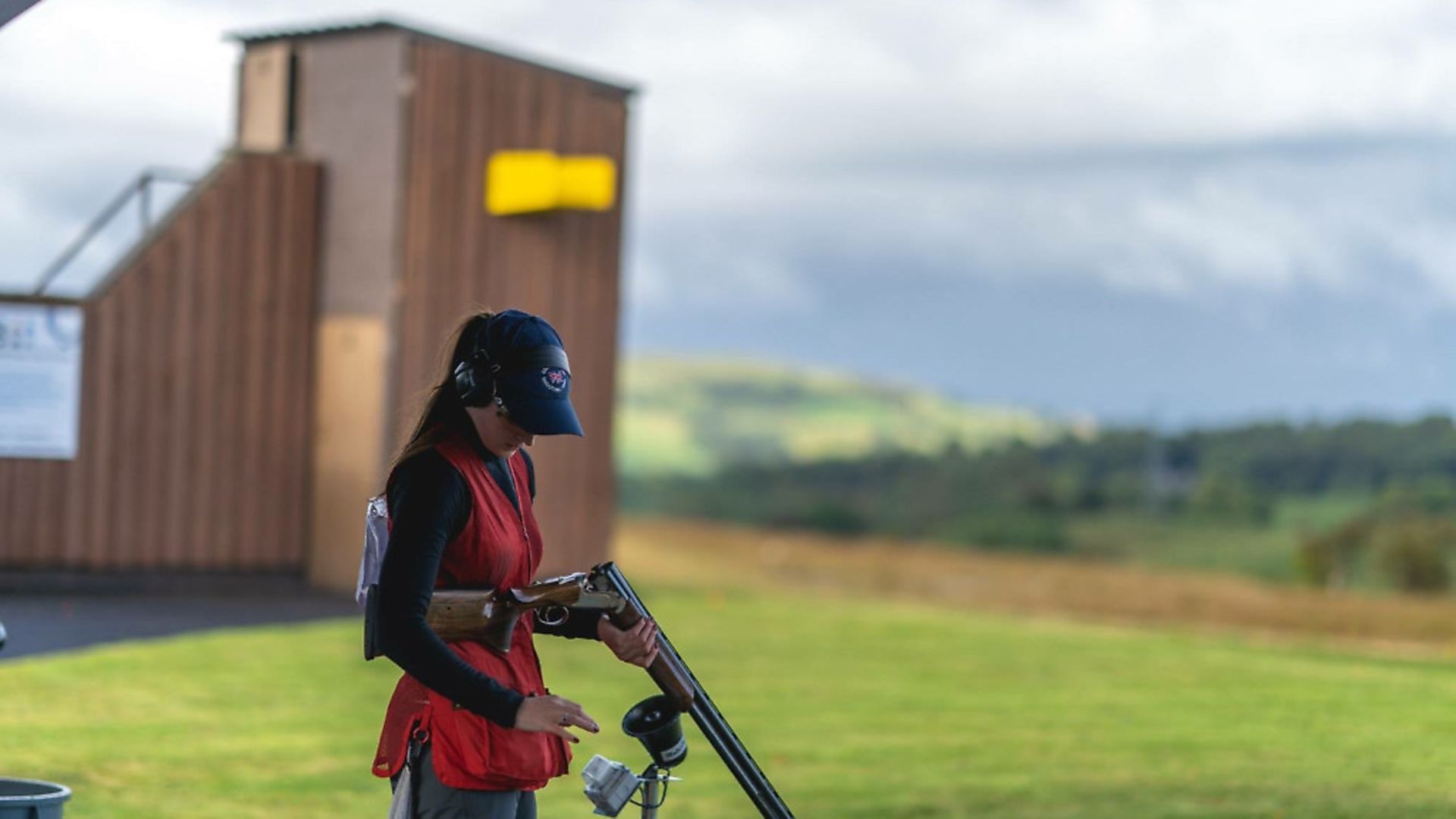 credit: Archant
credit: Archant
Building clients and offering more
When it comes to building a client base and a good reputation, Georgina’s advice is to offer more, let it come naturally, and use social media to your advantage. She told me: “I’m very lucky because I started coaching on the Talent Pathway, so I got some regular clients who wanted a bit of extra private coaching with me on the side to supplement the 10 Pathway sessions a year. But I think you just need to have a bit of faith – people will come to you! Don’t try and force it on people, you just have to get your name out there, show the positive side, and offer more to your clients than just saying ‘you’re behind that’ or ‘you’re in front of that’. People want value, and so I try to offer loads of off-the-range support as well as on-range coaching. I’m very open about the fact that I want to help people build their mindset, build their physical training, and talk about mobility and nutrition as well as their technique and all the stuff that just happens on the range. Shooting is a sport, and I think people forget that there’s a lot more to it than just pulling the trigger. So I think it’s really important to show or tell people why you’re special and why they should come to you.
“Social media is the future of everything! I know a lot of people have websites, but for me that is something people can click through to for a little more information – social media is where people are, especially Instagram. Everyone should have profiles to try and build their name. Another thing people often overlook is LinkedIn. There aren’t many shooting instructors on there, but I’m trying to connect with people outside of the shooting world who are involved in different sports, and see what they are doing, how they are bringing value to their sport, and how I can apply that to what I’m trying to do.
“Especially if you’re trying to get into the corporate side of things, there are a lot of big companies on LinkedIn. Wrexham Football Club goes to Fauxdegla for corporate days, which is brilliant, and once they’ve been they’ll keep coming back as it’s such a fun day for them. It’s a brilliant way of building shooting up as a sport too because it helps educate people, but it’s also helping people get involved in something they’ve never done before… they love it! That’s how people get hooked. That’s how I got hooked.”
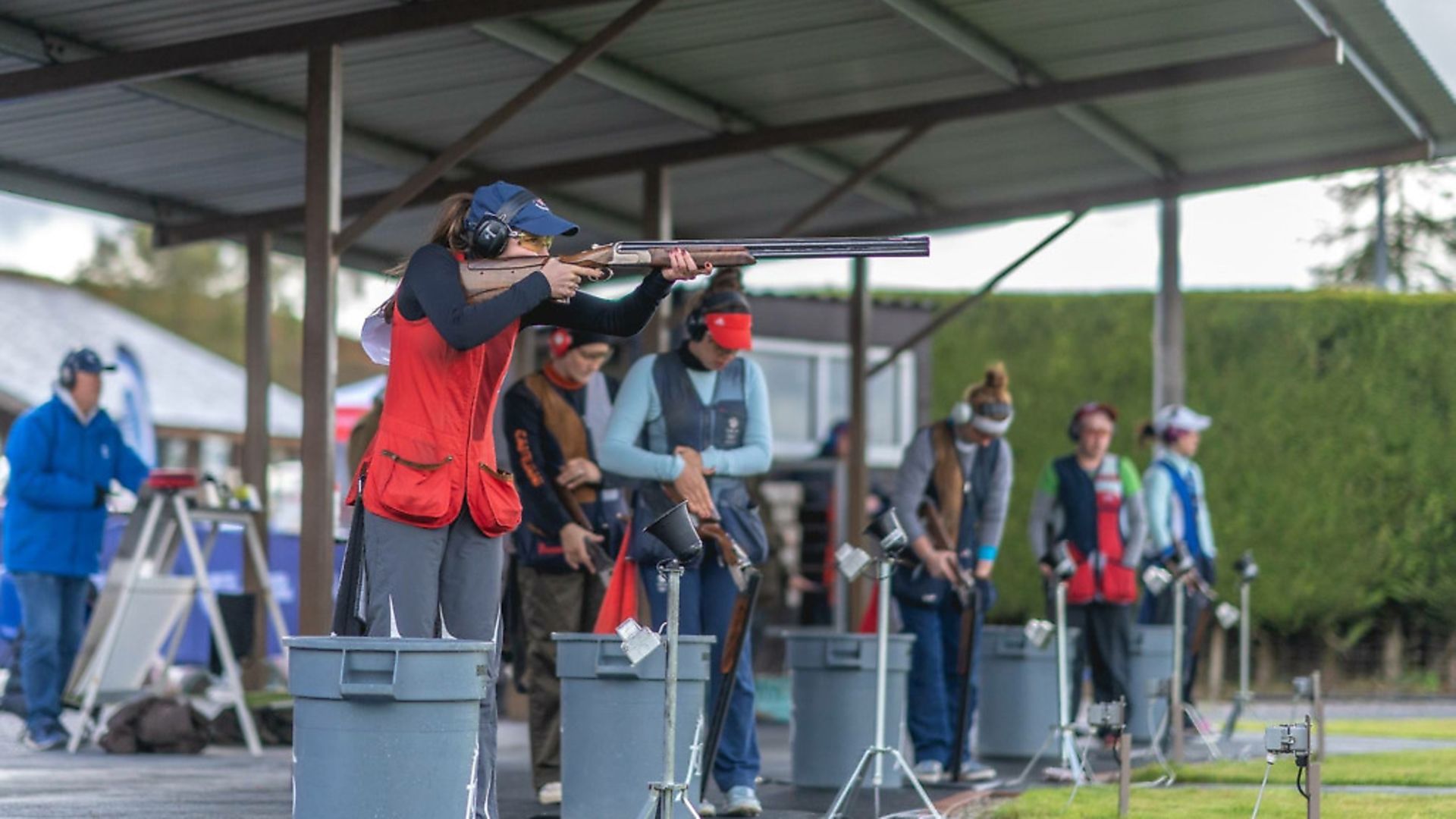 credit: Archant
credit: Archant
Looking to the future
The longer we chatted, the more I realised that Georgina is really quite an amazing person. I kept having to remind myself she is only 22 years old! She is clearly so much more than just a shooter or a coach – she has dedicated herself to being a true ambassador for the sport, and is always thinking of ways to cement its future. One of those ways is to encourage more women into the sport.
She said: “I know that if we’re not too careful we will lose shooting as a sport. We’ve already been taken out of the Commonwealth, although hopefully that will change, and we lost Double Trap from the Olympics, which was one of our most successful areas. Double Trap was removed to promote equality, as there was no women’s event in that discipline. A similar thing happened in air rifle. So, getting more women into the sport is really, really important. It also breaks stereotypes; there’s so many women I speak to who say they wouldn’t try it because it’s a male elitist sport, and it’s really not! We need more women, we need more juniors, and we have to keep moving forward and get out of the olden days. If we don’t break those stereotypes, we’re going to scare people off and intimidate people; we need to educate people and tell them what we’re all about.”
We were both desperate to get out and smash a few clays, so to round off our interview I asked for some solid advice for anyone looking at moving into coaching.
Georgina’s advice was: “Insurance is very important as a coach, and lots of people don’t think about it, so that’s something I would highly recommend getting sorted. Another bit of advice is to buy a really, really warm waterproof coat and trousers! Most importantly, be really nice to people. It doesn’t matter if they’re horrible to you. It’s a small industry and things travel by word of mouth, so even if you’re not coaching someone, even if it’s just someone you meet in the street or have a coffee next to in the shooting ground, they’ll go on to say ‘I met this really nice person and she coaches’, and word spreads. Try to remember that anyone who thinks they know everything has a lot to learn! Times are changing, techniques are changing, people are trying to shave bits off here and there to achieve perfection, so you need to be looking at yourself as well as your clients. Finally, be honest – if you don’t know something, hold your hands up, admit that, then go away and find out!”
With that, we grabbed our guns and headed out onto the range to shoot some Sporting targets, with me begging for help every now and again. I can confirm, in case anyone was wondering, that she sticks firmly to her own advice – Georgina is really, really nice.
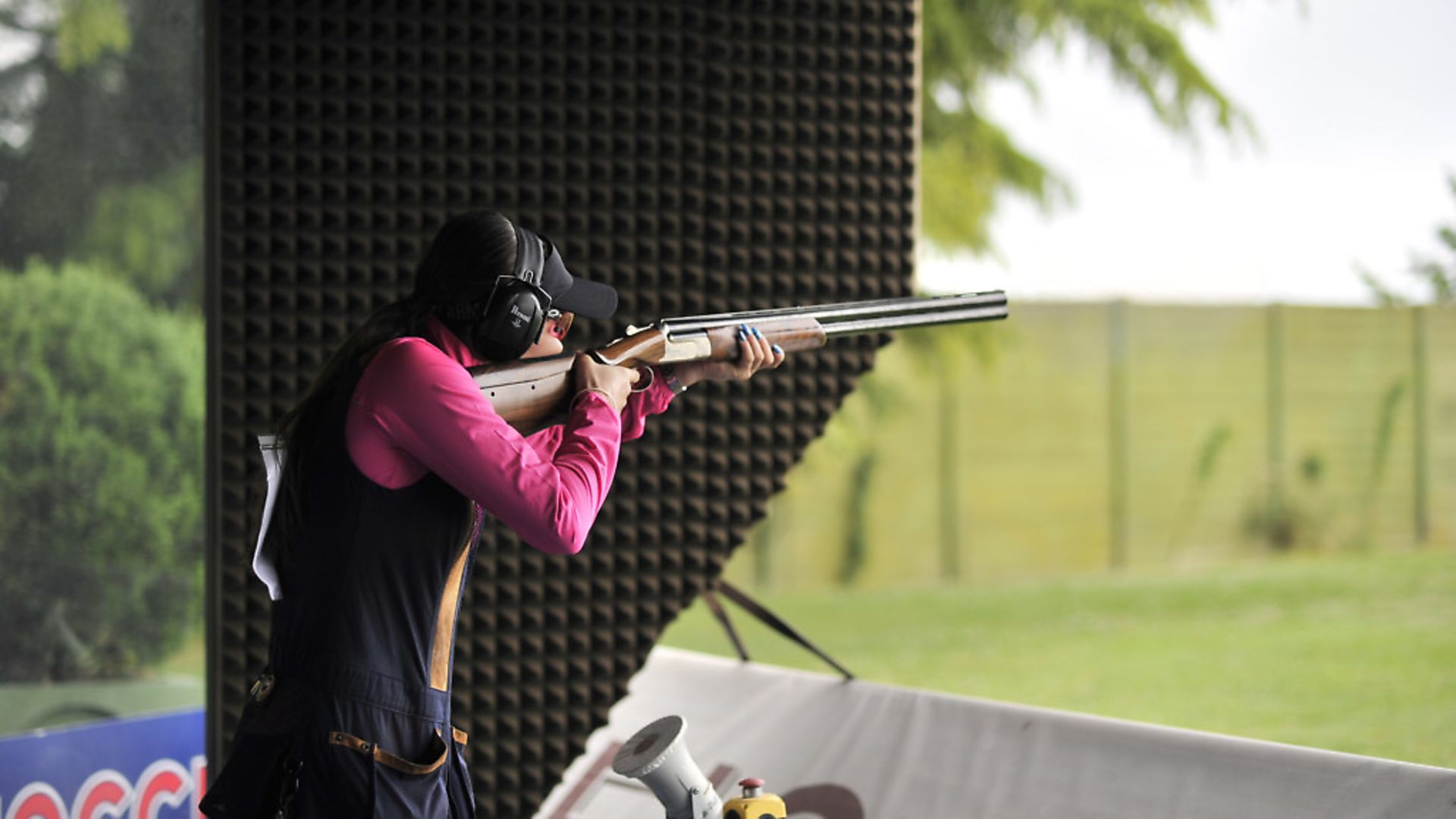 credit: Archant
credit: Archant
Best BITS OF COACHING
* Seeing people improve and helping people. I love helping people because I’ve received so much help myself throughout my shooting career. It’s like that corny saying, “I want to give something back”, but I really do. I want to add value, I want to help shooting as a whole sport; it’s so much more than just earning a bit of extra money
* You get attached to your shooters, and when they do well it’s the best feeling and I’ve had some really special moments with some clients, like clients hitting their first 25 straight, which is huge!
* It’s only when you’ve explained something enough times that you actually understand it yourself, so coaching is also helping me to learn while helping my clients. It’s helped me find different ways to explain something as everyone learns differently, so for some clients I can see in their eyes they don’t understand what I’m saying so I’ll try a different way; for example I’ll video them doing it, then video me doing it, and show it to them and then they can see the difference
Worst BITS OF COACHING
* Getting cold and wet!
* A lot of time away from my family
* You have to invest a lot of time; I do a lot of planning and a lot of feedback on my lessons which people don’t see. It’s actually a lot like being a teacher
* The key is that I just don’t see it as work since I really enjoy it… so the worst bits aren’t even bad, they’re just part of it. Shooting is my passion, it’s my life, so I just get on with it and it really is all worth it. I’m really proud to say that I do all that
TECHNIQUES
These are just some of the techniques Georgina utilizes to communicate in the best possible way with her clients:
* I swear by video, it makes such a difference.
* I draw pictures and diagrams, so for example if you need to give it lead on a Sporting bird they can see what the site picture might look like.
* Photos also help, so for example if I’m working with someone on foot positioning I will take pictures so they can see what is correct, and also, importantly, so that their parents can see when they’re stood behind them. Parents are amazing – they are vital! There are so many mums and dads that stand behind their kids and remind them what their coach has been teaching them, and so we need to use them as best we can.
* For some athletes I’ve made checklists that they can refer to when they train by themselves, which helps them to structure their sessions.
* Extensive lesson planning and feedback